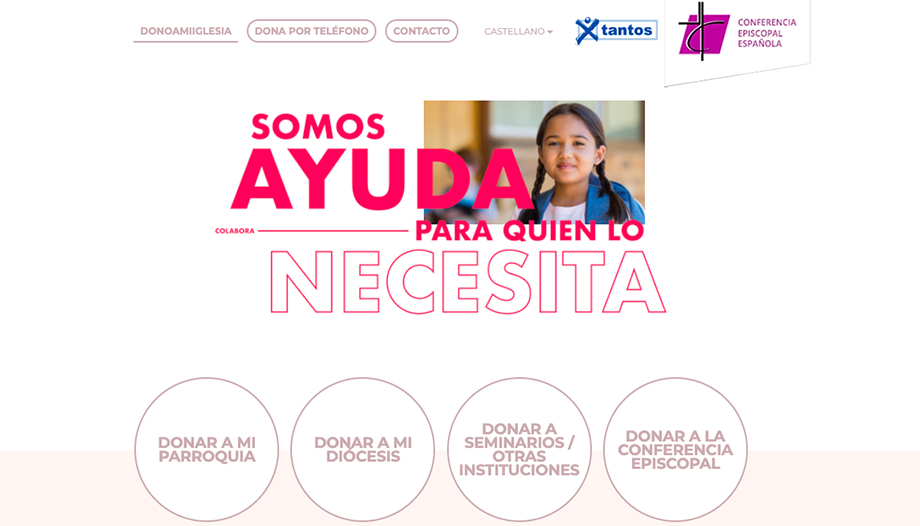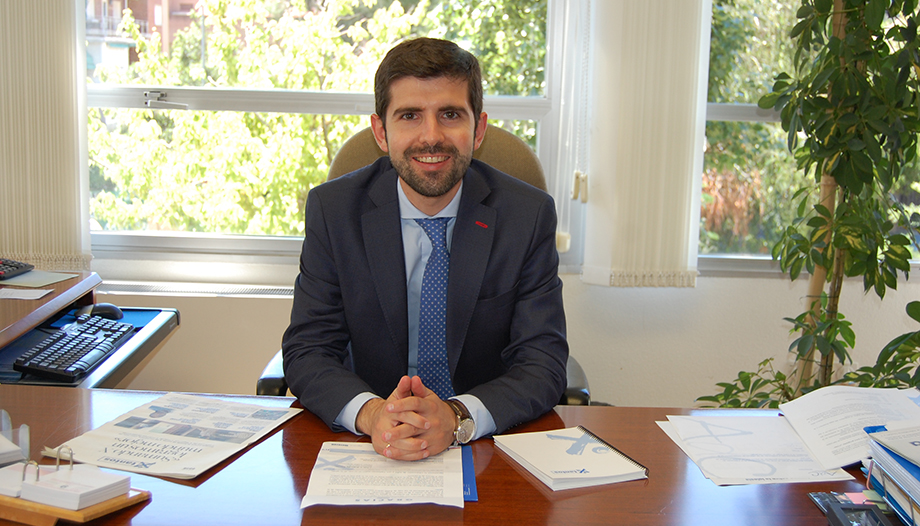Zaragozano, journalist and doctor in Communication, José María Albalad has been the head of the Secretariat for the Support of the Church of the Spanish Episcopal Conference since last September.
Its first months have been marked by the consequences of the pandemic on family economies and, therefore, on the Church, as well as the renewal of the donation portal. donoamiiglesia.
- The Spanish Church launched this donation system a few years ago. How has it evolved over the years? Has it been well received?
The donation portal is one of the strategic axes of the Secretariat for the Support of the Church, which has set itself the goal of promoting new technologies and alternative ways of collaboration.
Specifically, the donation portal 'donoamiiglesia.es' was created five years ago, in 2016, with a pioneering approach, since already at that time it allowed, at the click of a button, to make a donation to any of the 23,000 parishes in Spain.
The pandemic, therefore, caught the Church with its 'homework' done in this regard and, faced with the closure of churches due to the confinement of 2020, donations in this way increased fivefold.
However, the economic support received through the portal -in global terms- does not yet represent a particularly significant percentage, if we compare it with the volume of collections in Spain.
But it does increase significantly as new consumption and leisure habits are consolidated, increasingly closer to the digital ecosystem.
In this sense, the work that is currently being done with new technologies in general and with the donation portal in particular represents a clear commitment to the future. After this sowing period, the fruits -which are increasing- will multiply.
The pandemic, therefore, caught the Church with its 'homework' done and, faced with the closure of the temples due to the confinement of 2020, donations through the donoamiiglesia website increased fivefold.
José María Albalad. Director of the Secretariat for Church Support
- What changes does this new website present with respect to the previous donoamiiglesia?
The new design reflects needs that have been detected both by the Dioceses and the Spanish Episcopal Conference, as well as by the donors themselves. Specifically, the changes seek to increase ease of use for the user, through an intuitive website adapted to the profile of the donor: a person between 50 and 59 years old, who makes an average donation of 49 euros. This is already reducing the number of incidences, since the points of the process that could generate some kind of confusion have been addressed.
In addition, an interface has been created that seeks to transmit the friendly, human and transparent face of the Church. The idea is to gradually incorporate the publication of news, stories and testimonies.

A milestone of the new portal is that it facilitates the diffusion to the parishes with a specific URL for each entity, which in turn allows them to have a personalized QR code. From the point of view of promotion, this is a great opportunity for each community, which gains in proximity.
Donoamiiglesia.es' is a dynamic project, in continuous evolution, so this relaunch is not the end of the work. In fact, it is planned to incorporate Bizum as a payment method in the first quarter of next year.
- To what extent has the pandemic crisis affected these donations?
We are experiencing a double phenomenon. On the one hand, collections in Spain have fallen by a third as a result of the pandemic, as an approximate average. On the other hand, donations through the donation portal have increased, but not enough - at least for now - to cope with the drop in income.
In addition to this, the needs have skyrocketed and the Church has responded from the very beginning to the current challenge, attending to the particular situation of each person, of each family. The parishes have been (and are), without a doubt, the 'field hospital' that Pope Francis calls for.
The number of transactions this year through the donation portal exceeds 85,000, and recurring donations are on the rise. In other words, more and more people are committing to collaborate periodically with a fixed amount, which facilitates financial planning. It is important to remember that individuals (those who pay personal income tax) can deduct an 80% on donations of up to 150 euros.
The needs have skyrocketed and that the Church has responded from the outset to the current challenge, attending to the particular situation of each person.
José María Albalad. Director of the Secretariat for Church Support
- Now it is very easy to donate to exactly what we want: diocese, seminary or the EEC itself. In general terms, how are these donations distributed? Do we tend to "the known": parish, seminary... ?
In more than 90% of cases, people collaborate directly with their parish, which responds to a natural logic. The Christian community lives and celebrates its faith in the parish, which with its many activities (celebratory, pastoral, charitable...) is a witness to the joy and tenderness of the Gospel. This collaboration is not only economic, but also of qualities, time and prayer.
The Church is much more than a building or a person. We are shelter, food and hope for those who need it most. I would like to take this opportunity to extend my heartfelt thanks to all the people who checked the X box on their tax returns this year, to those who have donated - and even paid by direct debit - through their parishes or dioceses, to those who have left legacies or inheritances and, in general, to all those who have collaborated to the extent of their possibilities.
Without the generosity of so many people, the Church would not have been able to respond to the tsunami of needs unleashed by the pandemic and continue to proclaim the Good News.









